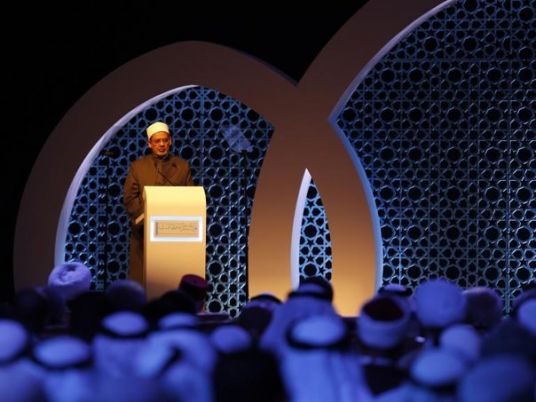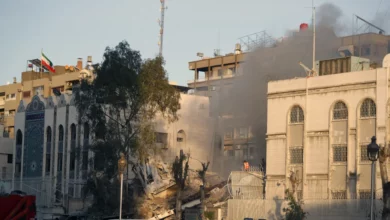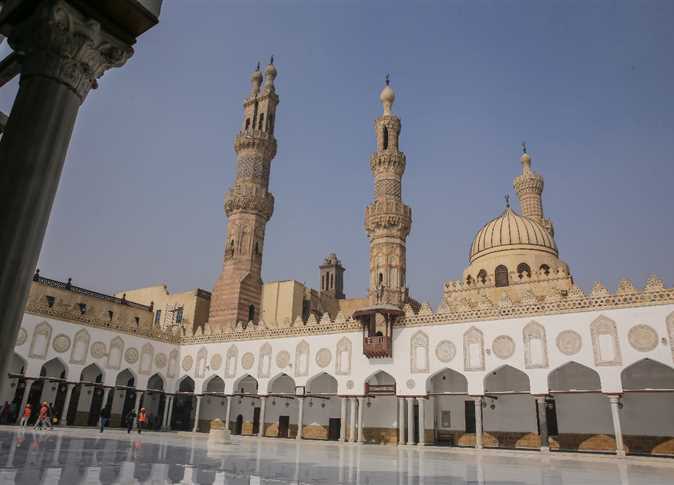
The Grand Sheikh of Al-Azhar has condemned the ongoing slaughter in the Syrian city of Aleppo as shelling and aerial bombardments continued for the ninth straight day on Saturday.
Despite a shaky ceasefire in place since February, forces on both sides in Syria’s protracted civil war have been pounding targets with high explosives since April 22, killing and wounding hundreds of civilians in Aleppo.
In a widely condemned incident on Wednesday, a hospital received a direct hit, killing up to 50 people, including three doctors, according to French medical charity Médecins Sans Frontières (MSF).
In a statement on Friday, Al-Azhar’s Grand Sheikh Ahmed al-Tayeb urged the international community to take responsibility for the situation in Aleppo and stop the bloodshed.
“Al-Azhar is deeply concerned about media reports on the human situation in the Syrian city of Aleppo due to the shelling of hospitals and places of worship and the killing of civilians in the city, resulting in the murder and injury of dozens of people, including children, women and displacement of many families,” said Tayeb.
He went on to say that the “tragic situation” did not allow for any further hesitation regarding the implementation of a proper ceasefire in the city, which is still divided between forces that support and oppose Syrian President Bashar al-Assad.
“The killing and destruction seen all over the media, and the search for victims among the debris, are not recognized by any traditions or religion. It violates all doctrines and international charters that call for respecting human beings and their right to a safe and decent life,” said Tayeb.
While a ceasefire between rebel and government forces was agreed in February, a number of militant Islamist groups, including the Islamic State (IS) terrorist group, refused to take part.
Fighting has continued between these terrorist groups and the Syrian military, backed by Russian forces, which has conducted massive bombing raids against IS positions across the country.
Among the other rebel groups not involved in the ceasefire are two Islamist groups that Russia said last week should be added to the UN Security Council’s blacklist of terrorist organizations involved in the conflict.
Russia has proposed the blacklisting of the Jaish al-Islam and Ahrar al-Sham groups for their links to IS and al-Qaeda militants, Russian UN Ambassador Vitaly Churkin said in a statement on Tuesday.
Also involved in ongoing violations is the Nusra Front terrorist group, which shelled residential areas of Aleppo last week, killing and wounding dozens, according to Syria’s state-owned news agency SANA.
Syrian and Russian aircraft have pounded terrorist positions in and around Aleppo for months now, despite the insistence of Western governments that the raids target “moderate” rebel groups also seeking to overthrow the Assad government.
Western and pro-rebel media sources have blamed Russian or Syrian forces for Wednesday’s
strike on the 34-bed Al-Quds hospital in Aleppo, which was supported by the International Committee of the Red Cross and MSF.
However, Russia’s Defense Ministry has denied any involvement in the attack, saying that no Russian aircraft were in the area at that time, pointing instead to an aircraft in the US-led coalition that was above the target.
Russian Defense Ministry spokesman Major General Igor Konashenkov said, "According to our data, on the evening of April 27 in airspace above Aleppo a plane of one of the countries of the so-called anti-ISIL coalition was working in the area for the first time after a long break," according to the Russia Today news website.
The US State Department, meanwhile, laid the blame at the door of the Syrian government.
"Once again we call on the regime to cease these absolutely senseless attacks," its spokesman John Kirby said, according to Reuters.
Menwhile, Staffan de Mistura, the UN special envoy for the Syria crisis, called on the US and Russia to “protect” the peace process, saying that military conflict was not the solution to Syria’s troubles.
He also warned that the hospital strike might lead to a “snowball effect”, creating ever-mounting tensions and reprisals. He warned against an "excessive response” that would then produce “another excessive response".
As of Friday, the US and Russia were in talks to arrange temporary local ceasefires in Latakia and eastern Ghouta near Damascus, but hopes of a more comprehensive cessation of hostilities seemed small.
The Russian and Syrian governments have in the past complained of atrocities conducted by anti-Assad forces but blamed on Syrian government forces in order to justify large-scale foreign military intervention such as that seen in Libya in 2011.
In the past, rebel forces have blamed the Syrian military for using chlorine gas against civilians, prompting the United States and other Western nations to call for large-scale military intervention to overthrow the Assad regime.
However, the Russian and Syrian governments say the deadly gas was supplied by Turkey and Saudi Arabia and deployed by rebel forces in several “false-flag” incidents designed to justify foreign intervention.
Hospitals have been much in the headlines in recent years as targets for airstrikes, including one hit in Yemen in January during a Saudi-led bombing campaign there.
In October last year, US forced bombed a hospital run by MSF in Kunduz, Afghanistan, killing 42 people and wounding 37 others. The US military announced on Friday that 16 US service personnel were to be punished for the attack, being issued with letters of reprimand and blocked promotion.
The Pentagon ruled that its airstrike on the Afghan hospital bombing was a mistake and therefore not a war crime.




